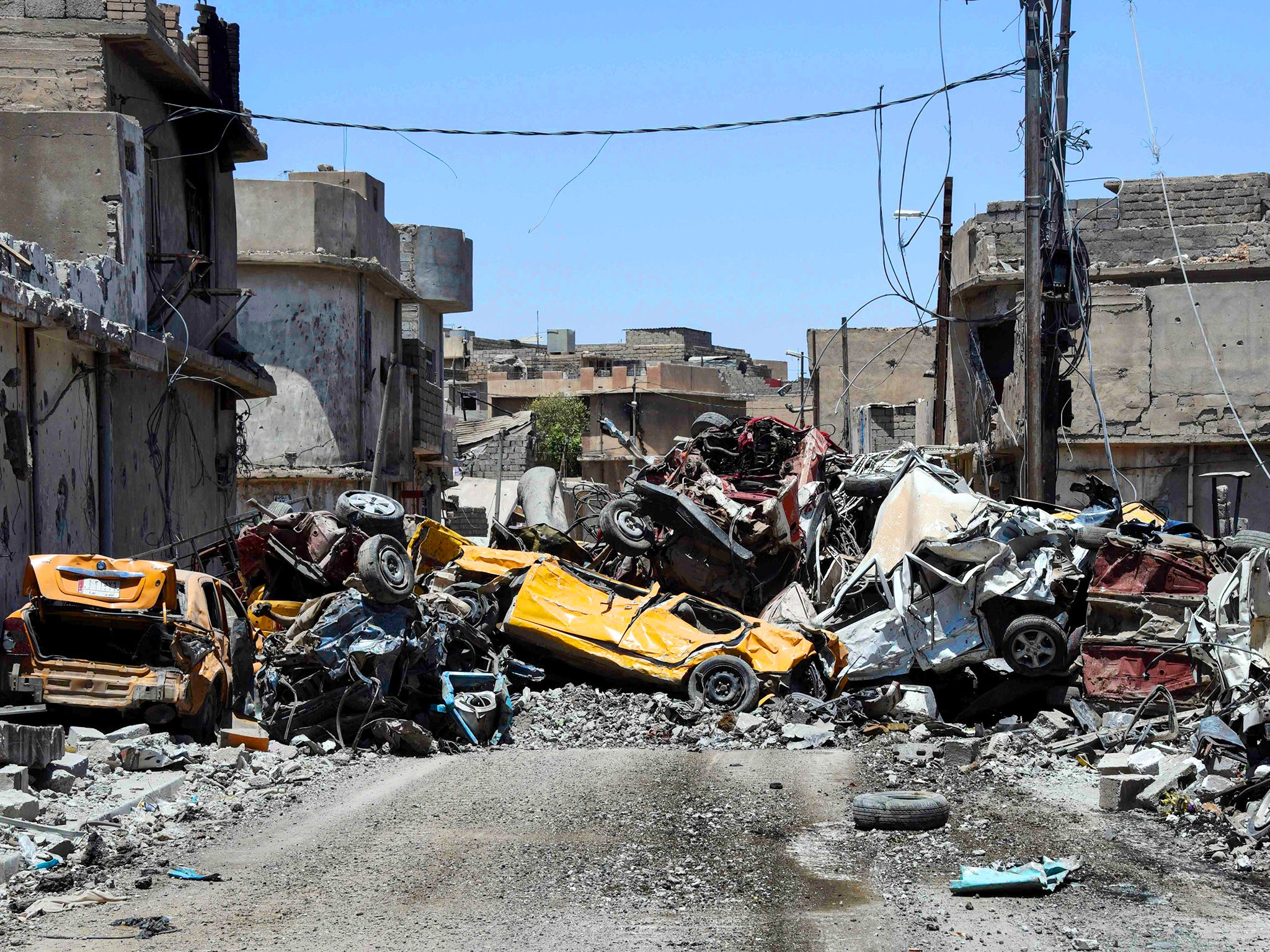White phosphorus use by US-led coalition forces in Iraq condemned by humanitarian groups
The deadly chemical can cause horrific injuries, burning deep into the muscle and bone.

Human rights groups have criticised the use of the white phosphorus chemical by US-led coalition troops in the Iraqi city of Mosul.
New Zealand Brigadier General Hugh McAslan admitted the potentially lethal substance had been used as they attempted to free civilians trapped in neighbourhoods controlled by Isis.
He said that around 28,000 civilians have travelled out of Isis strongholds in the city over the last few days.
Iraqi troops assisted by US-led coalition forces were in control of 90 per cent of the western area of Mosul, he added. But Isis is still holding out and using people as human shields, according to the United Nations.
Brigadier General McAslan told NPR: "We have utilised white phosphorous to screen areas within west Mosul to get civilians out safely".
However, the deployment of the chemical was criticised by Human Rights Watch.
“No matter how white phosphorus is used, it poses a high risk of horrific and long-lasting harm in crowded cities like Raqqa and Mosul and any other areas with concentrations of civilians,” said Steve Goose, arms director at Human Rights Watch. “US-led forces should take all feasible precautions to minimise civilian harm when using white phosphorus in Iraq and Syria.”
In early June, an internet café in Raqqa was hit by white phosphorus, killing approximately 20 people, a local resident told The New York Times.
Use of white phosphorus has been called into question, as it puts civilians in danger, but Iraqi Security Forces (ISF) claimed on 4 June that it was used to create a smoke screen.
A US-led coalition statement said: “While protecting civilians fleeing from the Jamouri Hospital the Coalition used smoke and precision munitions to suppress the enemy and provide cover for fleeing civilians.
"In conjunction with Iraqi Security Forces, the Coalition used appropriate munitions to suppress and obscure ISIS snipers so that the civilians could reach friendly forces.”
White phosphorus is known by the military as WP or Willie Pete and used to create a smokescreen for hiding troop movements. It can also be utilised to target enemy positions.
But if the chemical lands on skin, it can cause “horrific injuries, burning deep into the muscle and bone,” according to Amnesty International.
If particles of ignited white phosphorus land on a person's body, they can continue to burn through flesh to the bone. Toxic phosphoric acid can also be released into wounds, risking phosphorus poisoning. Inhaling the smoke can cause damage to the heart, liver and kidneys.
Under military law, it is not illegal for the military to use white phosphorus, although its use in populated areas is prohibited by international legislation.
Join our commenting forum
Join thought-provoking conversations, follow other Independent readers and see their replies
0Comments